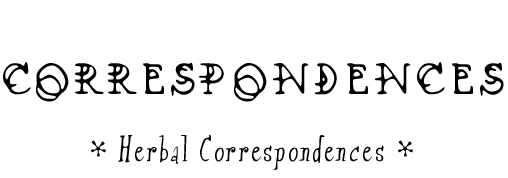 |

 NamesArtemisia comes from the Greek, artemis, meaning healthy and good. Its species name is also Greek, apsinthion, which means not liked probably owing to its bitter taste. The common names it is known by are Absinthe, Crown for a King, Green Ginger, Old Woman, and Wormwood.
CultivationWormwood is hardy in Zones 3-10 and thrives in partial shade or full sun in most any type of soil.The seeds germinate best when planted in the fall but it is best started in early spring from root divisions. One can also propagate it by rooting stem cuttings taken in the early summer. Place seedlings, rooted stem cuttings or root divisions 1 1/2-2 feet apart. In the fall cut back the plants in areas where the soil freezes and mulch after the ground has frozen. Utilize the cuttings for indoor bouquets or wreaths. Plant wormwood here and there in the garden and use it in the home for its ability to repel insects. It is a companion to cabbage and deters the cabbage moth. Used as a border plant it will aid in keeping animals out of the area.
HistoryIn ancient times it was believed that wormwood counteracted poisoning by toadstools, hemlock and bites of the seadragon. Absinthe is highly revered for use in ancient magical practices. It was utilized by the Mexicans in a festival wherein the women would wear garlands of wormwood on their heads. During the middle ages it was used to prevent evil from entering a house yet at the same time it represented all the sins of the world. It was strewn in rooms to repel fleas and laid in furs and other valuables to keep away moths and insects.
Culinary UsesWormwood is one of the bitterest herbs known. In the past it was used by brewers instead of hops and is the principle ingrediant in Absinthe liquer. Due to its highly addictive nature though it is now outlawed in most countries.
Spiritual Properties and Uses in MagicThe scent of wormwood increases one's psychic powers and can be burned as an incense or worn for this purpose.According to ancient grimoires if burned with sandalwood in a graveyard it will cause the spirits of the dead to speak with you. Worn as an amulet it protects against bewitchment and is used to protect against accidents on treacherous roads. An infusion of wormwood will give vitality and enthusiasm and help one overcome moments of low energy. Utilize this after any difficult task especially when performing a long ritual. This tea is also quite useful during a long night of passion. Placing the herb under the bed will draw a loved one to you.
Healing Properties and UsesThe flowers and leaves of wormwood are used in medicinal remedies but it must be used with caution. The leaves are a preservative and are a principle ingrediant in many antiseptics.This herb has the ability to stimulate the nervous system, gives vitality to the appetite and aids the liver and stomach. Use the leaves and flowers in a light infusion to help with heartburn, indigestion and flatulence. A fomentation of wormwood soothes sprains and bruises and the oil used externally relieves arthritis.
CautionsOnly use the oil externally.Prolonged use of wormwood internally can lead to nerve damage.


|
 |
 |


